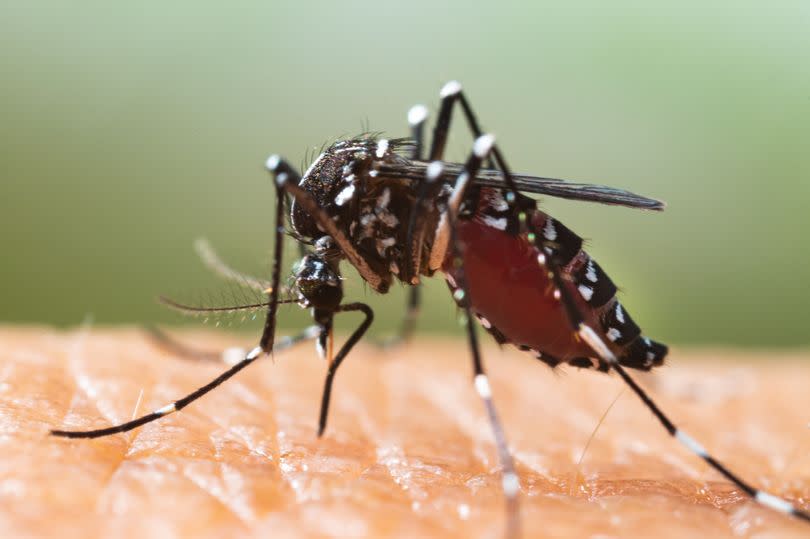Mosquitoes found in Scotland as temperatures rise

Mosquitoes have been discovered in Scotland for the first time and are spreading to every corner of the country, researchers say.
Driven by climate change, at least 16 types of mosquito have found their way to Scotland and are now set to rival the famous Scottish midge.
Scientists warned hotter temperatures brought about by global warming will see the beasties become more and more widespread - including species which can carry deadly tropical diseases.
Prof Heather Ferguson of Glasgow University, who is leading the study, said she was surprised to find the insects already in locations up and down Scotland.
The highest concentrations were at sites around Loch Kinnordy in Angus and Broubster Leans in Caithness.
Prof Ferguson said: "With warming temperatures we’re going to see larger numbers of mosquitoes - potentially different species including some that might be migrating from other areas where they can transmit diseases.
"They may be active for longer periods which means they maybe do pose a risk.”
Up until now, there has been scant knowledge of how widespread mosquitoes are in Scotland.
The most notorious pest for Scots has traditionally been our blood-sucking swarms of midges, who thrive in the country’s warm and wet summers, particularly in areas like the Highlands.
Mosquitoes are larger than midges and have a needle-like mouth with which they suck blood - and this ‘proboscis’ can also carry deadly diseases like malaria and dengue.

The World Health Organisation estimates around 400,000 people a year die from contracting malaria from mosquitoes.
However, experts insist a mosquito which carries the disease is unlikely to appear in the UK any time soon.
Glasgow Uni researchers hung traps at 24 locations across the country to locate and identify the mosquitos.
Of the 16 species discovered included the Culex pipiens, one of the most common types of mosquito and found in the Americas, parts of Europe and some areas of Asia and Northern Africa.
Dr Nick Phin, medical director at Public Health Scotland, said it was important to keep track on mosquitoes in the country - explaining how the West Nile virus had spread to Europe via infected insects in recent years.
He said: “Cases have been identified in France. It doesn’t take a leap of the imagination to see that very soon they could be detected in England and in Scotland.
"It’s the warmer winters rather than the summers which allow the mosquitoes to survive.
"That’s because colder conditions kill off many of the insects, keeping population numbers lower."
The beasties have also been responsible for cases of dengue fever in France and the chikungunya virus in Italy.
And it’s thought the Scottish Lowlands could become a suitable habitat for the dengue-carrying Asian tiger mosquito later this century as the planet heats up.
Dr Phin said surveillance needed to be ramped up now “to detect early incursions of these mosquitoes into Scotland”.
Don't miss the latest news from around Scotland and beyond - Sign up to our daily newsletter here .

 Yahoo News
Yahoo News 
